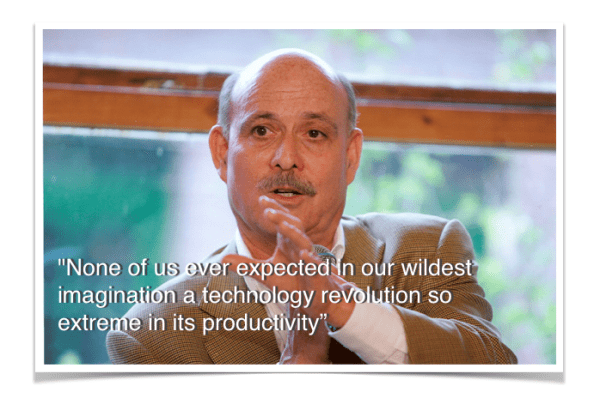Jeremy Rifkin, the founder of the ‘Foundation on Economic Trends’, is an economic and social theorist, advisor to sovereign nations (China, France et al) and an overall big thinker that looks to the future with the benefit of a profound knowledge of the past. While most of us toil in our day – to – day routines struggling to manage the changes in our immediate world, Rifkin is charting a path for his vision of future society. In his most recent work, Rifkin associates crowdfunding and peer to peer lending as factors in his prognosis of our future economic system.
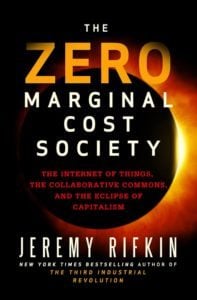 Rifkin has long been associated with University of Pennsylvania Wharton School of Business where he instructed CEOs and Senior Management on transitioning their business operations into sustainable entities as part of the Executive Education Program – always a pressing topic. He recently authored a widely read book titled “The Zero Marginal Cost Society : The Internet of Things, the Collaborative Commons, and the Eclipse of Capitalism” (published by Palgrave Macmillan) ” where he shared his thoughts on the next economic model – the one that will supplant capitalism – something that most of us (including this author) will struggle to accept. His provocative ideas have caught the attention of world leaders around the globe. Being an advisor to China, France, Germany and the European Union, his global perspective challenges entrenched beliefs, with governments seeking solutions to compete and evolve into more productive and sustainable economies. As part of his perspective, the innovations of peer to peer lending and crowdfunding are not just symptoms of the change but active facilitators of the evolution.
Rifkin has long been associated with University of Pennsylvania Wharton School of Business where he instructed CEOs and Senior Management on transitioning their business operations into sustainable entities as part of the Executive Education Program – always a pressing topic. He recently authored a widely read book titled “The Zero Marginal Cost Society : The Internet of Things, the Collaborative Commons, and the Eclipse of Capitalism” (published by Palgrave Macmillan) ” where he shared his thoughts on the next economic model – the one that will supplant capitalism – something that most of us (including this author) will struggle to accept. His provocative ideas have caught the attention of world leaders around the globe. Being an advisor to China, France, Germany and the European Union, his global perspective challenges entrenched beliefs, with governments seeking solutions to compete and evolve into more productive and sustainable economies. As part of his perspective, the innovations of peer to peer lending and crowdfunding are not just symptoms of the change but active facilitators of the evolution.
Collaborative Commons and Zero Marginal Cost
I recently had the opportunity to speak to Rifkin about his thesis, an approach that incorporates the new world of crowdfunding for capital allocation. Rifkin believes we are on the cusp of a seismic shift to a new economic system that he has labeled the “collaborative commons”. This new world order is one where resources are allocated based on laterally scaled, distributed models – not vertically integrated models we are mostly comfortable with today. He believes this is the first new economic paradigm since the early 19th century and he states it is a remarkable historical event. If Rifkin is accurate – the world needs to prepare for a dramatic change.
 All is not lost for hardened students of Adam Smith as Rifkin’s transformation is more of a hybrid model: part capitalist and part collaborative commons. As a matter of fact, the main tenant is based upon the concept of achieving zero marginal cost.
All is not lost for hardened students of Adam Smith as Rifkin’s transformation is more of a hybrid model: part capitalist and part collaborative commons. As a matter of fact, the main tenant is based upon the concept of achieving zero marginal cost.
When producing a product after covering fixed costs – marginal costs are realized. Any good businessperson is driven to lower marginal costs to increase profit. Rifkin believes that for some industry sectors, we are entering the era of “zero marginal costs”. In some respects this may be described as a victory for the invisible hand of the market because Rifkin posits we are about to reach the optimally efficient state where it is feasible to sell at a zero marginal cost.
How is this seminal event occurring? Through Technology – naturally. Rifkin’s prose has been so compelling, the Premier of China has embraced his hypothesis with the middle world positioning itself to become the new global economic power.
Rifkin states:
“None of us ever expected in our wildest imagination a technology revolution so extreme in its productivity. It can reduce marginal cost to near zero. Making goods potentially free, abundant and beyond market forces.”
 It is already beginning to happen. Achieving zero marginal cost is not yet quite possible but we are getting closer, particularly in the information technology industry. According to Rifkin, we first saw it with Napster where consumers shared their music simply bypassing the recording industry. Then there are the examples of prosumers setting up news sites, passing up the traditional media and news industry or book publishing, where millions of people are putting out free e-books and other material. Newspapers are going belly-up since they cannot compete with zero marginal cost. Then there is the creation of the communication internet that we all use. Another example is Massive Open Online Courses (MOOC) where millions of students are taking college courses for free. In the Recording industry, YouTube is producing and sharing videos – circumventing television.
It is already beginning to happen. Achieving zero marginal cost is not yet quite possible but we are getting closer, particularly in the information technology industry. According to Rifkin, we first saw it with Napster where consumers shared their music simply bypassing the recording industry. Then there are the examples of prosumers setting up news sites, passing up the traditional media and news industry or book publishing, where millions of people are putting out free e-books and other material. Newspapers are going belly-up since they cannot compete with zero marginal cost. Then there is the creation of the communication internet that we all use. Another example is Massive Open Online Courses (MOOC) where millions of students are taking college courses for free. In the Recording industry, YouTube is producing and sharing videos – circumventing television.
We have not spent enough time studying what this has done.
Rifkin further shares, “Economists assumed there would be a firewall. The zero marginal cost phenomena impact would not cross the firewall from the virtual world of bits to the physical world of atoms. Now that firewall has been breached and that is what is really interesting. A new technology revolution is emerging that is allowing us to move to a zero cost phenomena. My read on history is that every great ecumenic shift relies on three components : a communication revolution, an energy revolution, and a transport and logistics revolution.”
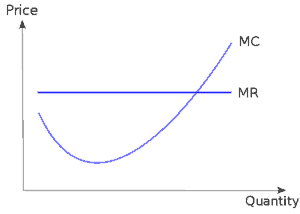 Indeed, Rifkin draws parallels to earlier industrial shifts using the 19th century as an example when we had new forms of communication, energy and transportation. Society went from manual print presses to steam-powered rotary presses allowed printing on an industrial scale – a huge leap forward. We could suddenly mass produce huge amounts of inexpensive information at a lower marginal cost. Then the telegraph was invented, the first ever device for human-to-human transmission of coded text messages.
Indeed, Rifkin draws parallels to earlier industrial shifts using the 19th century as an example when we had new forms of communication, energy and transportation. Society went from manual print presses to steam-powered rotary presses allowed printing on an industrial scale – a huge leap forward. We could suddenly mass produce huge amounts of inexpensive information at a lower marginal cost. Then the telegraph was invented, the first ever device for human-to-human transmission of coded text messages.
In the 20th century we witnessed yet another industrial revolution with centralized electricity, telephone/radio/television for communication  media, and inexpensive oil. Cars and national road systems followed. What is now emerging according to Rifkin. is a new type of general purpose platform enabling a reduction of marginal costs across significant industry sectors including transport, energy, and communication. This catalytic platform, as Rifkin believes, is the Internet of Things (IoT). Rifkin describes “three internets merging”, namely energy, automated transportation, and communication with all three being connected, thus uniting communications, power, and mobility on a single operating platform. In his book, he explains how millions of sensors are being attached to natural resources, production lines, the electricity grid, logistics networks, recycling flows, and implanted in homes, offices, stores, and vehicles, feeding Big Data into the IoT global neural network. Small and medium sized enterprises and Prosumers will be able to connect to the network and use Big Data, analytics, and algorithms to accelerate efficiency, dramatically increase productivity, and lower the marginal cost of producing and sharing a wide range of physical products and services to near zero, making them nearly free, just like we now do with information goods.
media, and inexpensive oil. Cars and national road systems followed. What is now emerging according to Rifkin. is a new type of general purpose platform enabling a reduction of marginal costs across significant industry sectors including transport, energy, and communication. This catalytic platform, as Rifkin believes, is the Internet of Things (IoT). Rifkin describes “three internets merging”, namely energy, automated transportation, and communication with all three being connected, thus uniting communications, power, and mobility on a single operating platform. In his book, he explains how millions of sensors are being attached to natural resources, production lines, the electricity grid, logistics networks, recycling flows, and implanted in homes, offices, stores, and vehicles, feeding Big Data into the IoT global neural network. Small and medium sized enterprises and Prosumers will be able to connect to the network and use Big Data, analytics, and algorithms to accelerate efficiency, dramatically increase productivity, and lower the marginal cost of producing and sharing a wide range of physical products and services to near zero, making them nearly free, just like we now do with information goods.
Three internets on one platform: Transportation; Energy & Communication.
“We have an amazing platform now to reduce the income divide and democratize information goods…and perhaps create a more ecological society. But there is a big “if” as to how it will evolve.”
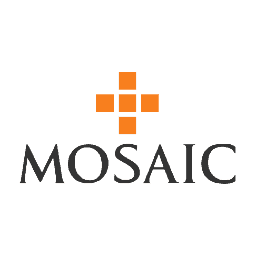 In Rifkin’s book he specifically cites Mosaic, the Solar Energy Crowdfunding company, as an example of a collaborative shift in how society is allocating resources. Mosaic is a peer to peer lending platform that helps to finance solar installs both for residences and commercial structures. Mosaic is using the power of the crowd to aid this shift to an energy environment where our electricity is free – once the technology is installed.
In Rifkin’s book he specifically cites Mosaic, the Solar Energy Crowdfunding company, as an example of a collaborative shift in how society is allocating resources. Mosaic is a peer to peer lending platform that helps to finance solar installs both for residences and commercial structures. Mosaic is using the power of the crowd to aid this shift to an energy environment where our electricity is free – once the technology is installed.
“I thought Mosaic is quite interesting in what they are doing. What is happening in the U.S. is quite different than in Europe. In Europe the banks are already financing low interest green loans. The reason they are willing to do these loans is they simply take a look at your energy bill and what you will have after you install the technology : they know exactly how much you are going to save each month.”
In Europe, Rifkin affirms, we now have several million players creating their own energy at zero marginal cost. “If we maintain the same trajectory, in 10 to 15 years solar and wind will be cheaper than any other type of energy. In Germany we are at 25% green electricity heading to 35% green electricity.”
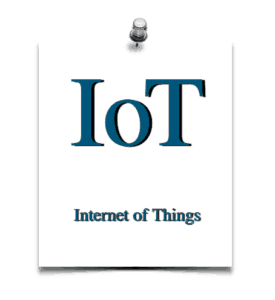 What happened to the German energy industry is similar to what Napster started with the music industry. There are four big energy companies in Germany. They have been transformed by many small players. More new players are starting to come into play in Germany. The funding is in part coming from crowdfunding. The big energy players are going to go from creating energy to managing energy .. becoming essentially an energy aggregator.
What happened to the German energy industry is similar to what Napster started with the music industry. There are four big energy companies in Germany. They have been transformed by many small players. More new players are starting to come into play in Germany. The funding is in part coming from crowdfunding. The big energy players are going to go from creating energy to managing energy .. becoming essentially an energy aggregator.
While Mosaic is a trailblazer in their mission, Rifkin states that “ Current (U.S.) policy involves setting up a grid to manage fossil fuels. What’s happened is kind of sad”. In point of fact, there is legitimate concern that if we lock into the old energy and logistics platform, we cannot take advantage of productivity boost. The old energy is expensive in comparison to renewable energy which is nearly free once you put in the technology. “You can’t compete with that.” After democratizing communications but then locking into old energy and transportation – “the US is cutting itself out”.
 China, in contrast, has apparently embraced Rifkin’s approach and has been endorsed by the Vice Premier who is in charge of the economy. Rifkin who spent several weeks in China last fall noted that a few weeks after he was there, China announced a multibillion commitment to lay out the energy internet. “China wants to be the leader in the 3rd industrial revolution in the 21st century”. Rifkin sees and believes that “China and the EU, led by Germany, will begin to head in this direction.”
China, in contrast, has apparently embraced Rifkin’s approach and has been endorsed by the Vice Premier who is in charge of the economy. Rifkin who spent several weeks in China last fall noted that a few weeks after he was there, China announced a multibillion commitment to lay out the energy internet. “China wants to be the leader in the 3rd industrial revolution in the 21st century”. Rifkin sees and believes that “China and the EU, led by Germany, will begin to head in this direction.”
Rifkin has not given up on the US. He states that, “If there is good news, then there is this: America moves really quickly if we want to. We are just in the old narrative. I don’t know what is going to happen in the next few years in the US and Canada, but right now we are not there. We are not in this game yet except for a few states.”
“Moving from a traditional capitalist market to a global collaborative commons.”
Rifkin is of the opinion that by mid-century the capitalist market will still be thriving – but it will be a hybrid model made of the capitalist system and a collaborative commons.
“Laterally scaled co-operatives will generate the primary economic activity but all of this could be derailed because of the huge challenges. We think the journey is heading this way but something could dislodge it. There are a lot of obstacles.”
 The first industrial revolution required massive investments of capital. Banks emerged to help finance new businesses and resulted in creating vertically integrated companies across the whole food chain. The banking system had to evolve and be scalable to sustain increased demands and higher trading volumes. Now we are entering a new form of finance – and crowdfunding is playing a major role in its disruptive approach. Crowdfunding is a “real player in laying out this infrastructure” says Rifkin. The opportunity is enormous but the challenges are daunting.
The first industrial revolution required massive investments of capital. Banks emerged to help finance new businesses and resulted in creating vertically integrated companies across the whole food chain. The banking system had to evolve and be scalable to sustain increased demands and higher trading volumes. Now we are entering a new form of finance – and crowdfunding is playing a major role in its disruptive approach. Crowdfunding is a “real player in laying out this infrastructure” says Rifkin. The opportunity is enormous but the challenges are daunting.
I do believe we are entering a new, global societal shift. The internet is still very much in it’s early stages and the power of an interconnected world, and the catalytic impact of this shift, are still not completely appreciated. Crowdfunding is impacting so many different industries because of the profound importance of capital allocation and needs of finance. While I am not ready to throw capitalism under the bus and embrace zero marginal cost as an “end of history” type event – clearly some industries are being inexorably altered by efficiencies previously unrealized. Productivity is being impacted as the social economy unlocks value via this massive collaboration – all for the better. Crowdfunding in all its variants is occurring around the world. While there are impediments to its growth, it is wise to never stand in the way of technological innovation. Collaboration, the commons and crowdfunding are clearly intertwined as a future economic reality.


